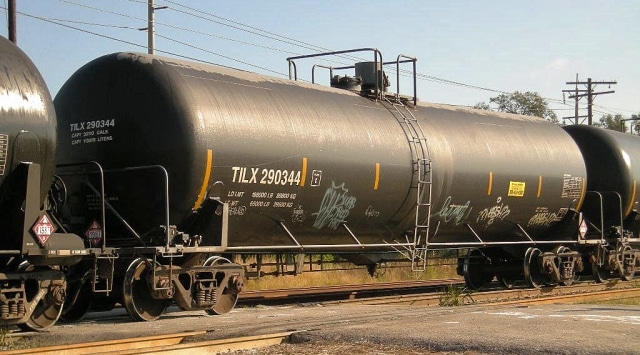The City Council of Oakland, California has passed a resolution opposing the transport of coal, oil, petcoke (a byproduct of the oil refining process) and other hazardous materials by railways and waterways within the city.
The resolution is a response to “a new push by the fossil fuel industry to transport, export, and/or refine coal, crude oil and petroleum coke (“petcoke”)… on the West Coast and in California,” as well as efforts by California refineries to build new rail terminals that would allow them to import more crude oil from the tar sands in Canada and the Bakken Shale in North Dakota.
Crude-by-rail shipments are expected to travel through some of California’s most ecologically sensitive areas, as well as some of its most populated cities.
Oakland’s resolution is the first of its kind for California, as it goes further than similar resolutions passed by Berkeley and Richmond opposing crude-by-rail.
“Oakland is leading the way for Californians who want to tell Big Coal and Big Oil that we cannot bear the risk they impose upon on our town,” said Lynette Gibson McElhaney, one of three council members who sponsored the resolution.
State legislators are also taking steps to minimize the threat to California’s ecosystems and human health posed by shipping fossil fuels via rail. The state will soon begin charging a 6.5-cent fee on every barrel of oil shipped by rail into the state or piped within the state, which is expected to raise some $11 million in its first year. The funds will be used to better train and equip first responders in spill response, with a special focus on spills in waterways, and to hire more rail inspectors.
Just how big of a risk crude-by-rail poses to California is hard to gauge because the railway shipping industry refuses to release information to the public about its operations.
The companies that operate the trains, like BNSF Railway Co., protect information on the size and timing of shipments as “trade secrets,” meaning the public is often in the dark as to what is moving through their cities and when.
Even first responders aren’t getting enough information. According to an investigation by the The Sacramento Bee:
Sacramento Interim Fire Chief Lloyd Ogan said Monday he recently learned from state officials that Sacramento is one of the cities that Bakken shipments pass through. Ogan said the state offered no other details.
“I can’t tell you what the quantities have been” or when they come through, he said. “We only know some has gone through, only because we asked questions.”
Ogan said he and other first responders want more information about shipments to allow them to be better prepared for potential derailments, leaks and fires.
Responding to the “potential higher volatility” of Bakken crude and the sharp rise of crude-by-rail shipments, the U.S. Department of Transportation issued an emergency order requiring more information on shipments be divulged to emergency response agencies.
But so far, the railroad companies have been reluctant to comply. For instance, BNSF is the only rail company that submitted data to California before the deadline set by the Department of Transportation.
And even BNSF did not divulge much. Kelly Huston, deputy director of the California Office of Emergency Services, said, “We aren’t convinced that the information we were provided meets the intent of the (federal Department of Transportation’s) emergency order.”
Photo by Harvey Henkelmann
Subscribe to our newsletter
Stay up to date with DeSmog news and alerts






